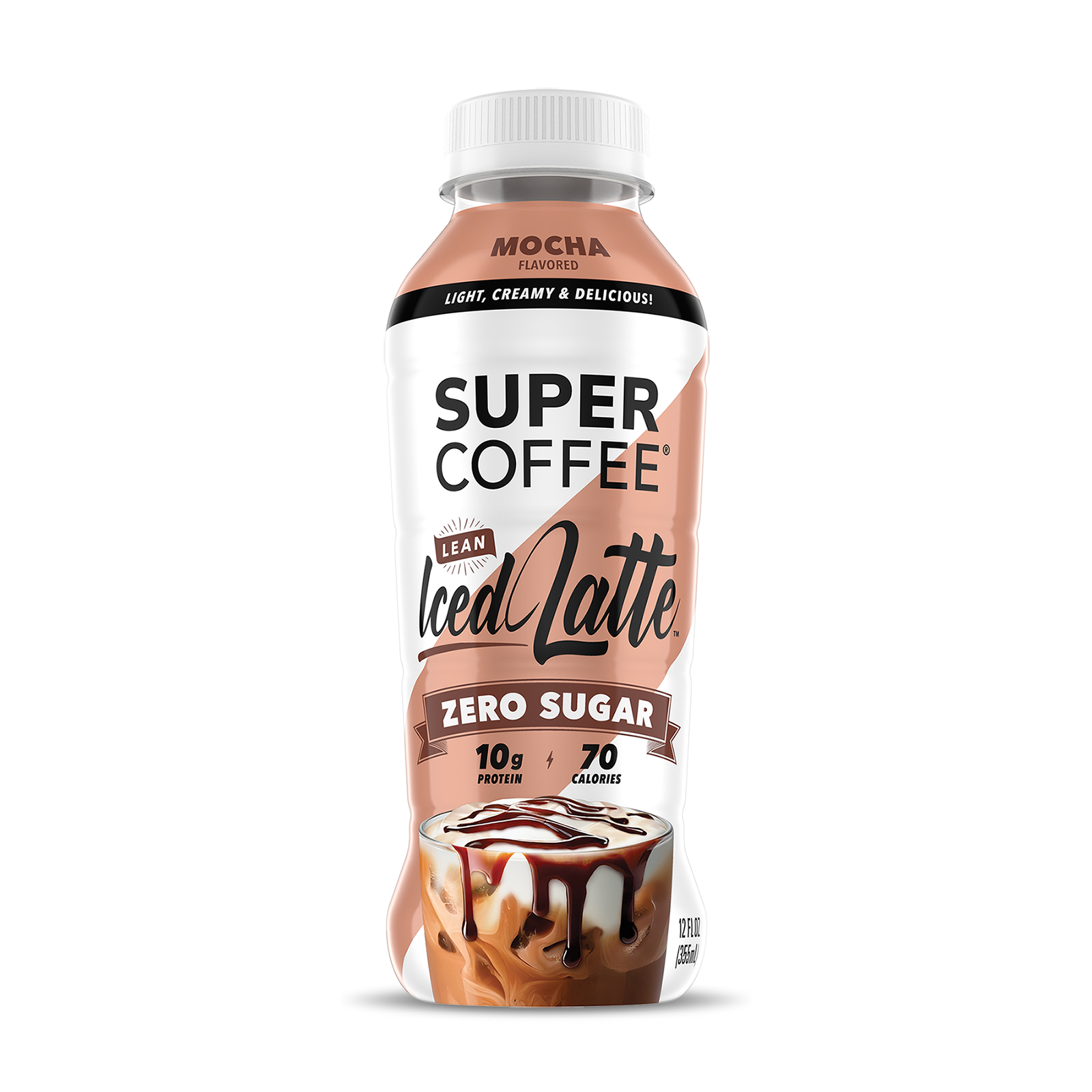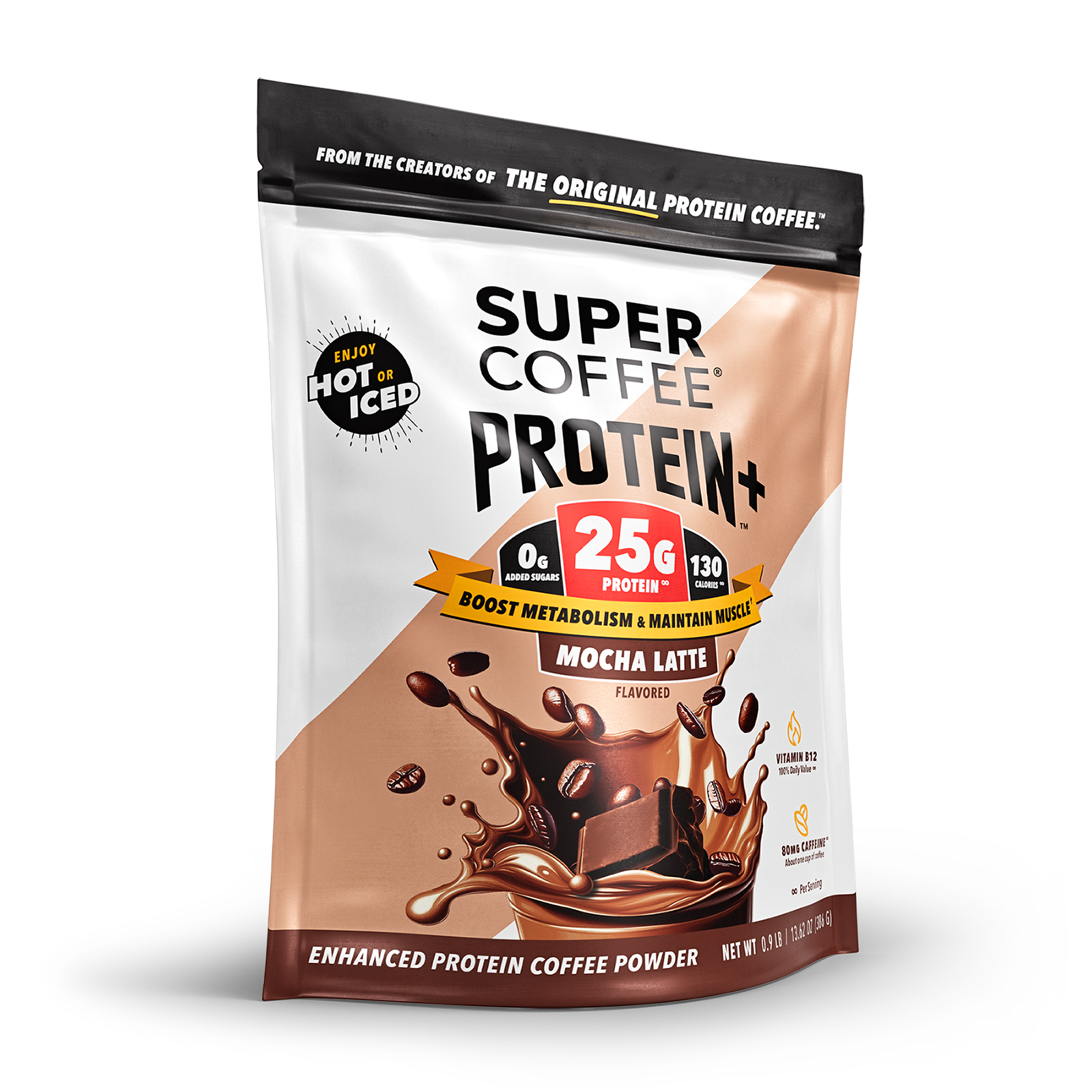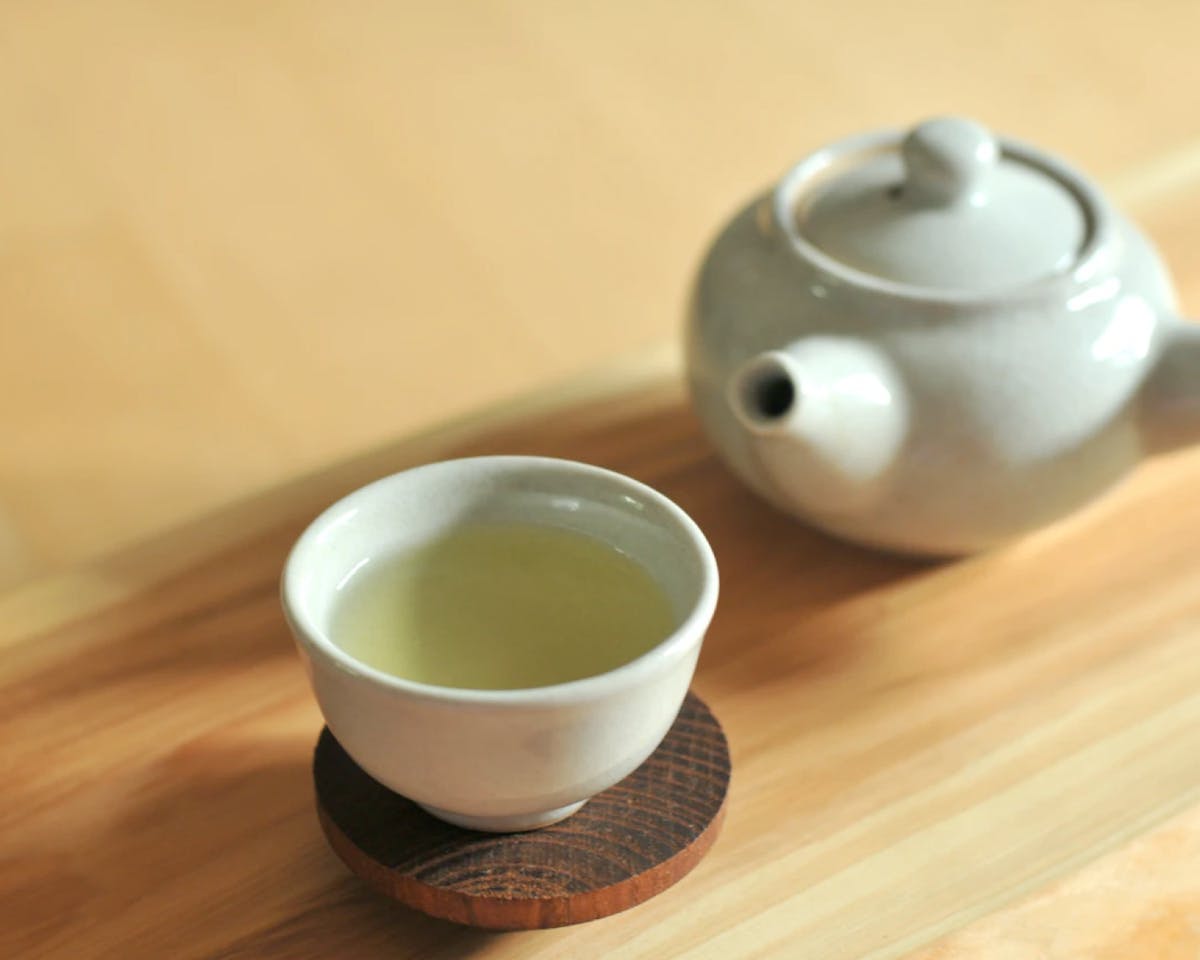Your cart is empty
People have been drinking tea for thousands of years, and tea consumption is as high as ever.
Black tea, oolong tea and green tea are all made, in different ways, from the leaves of the Camellia sinensis plant. But over the last few centuries, green tea has assumed a somewhat-mythical status because of its purported health benefits – and we’ve learned more recently that many of those benefits aren’t just myths, they’re real.
High polyphenol content, particularly the antioxidant known as EGCG, is largely credited for the apparent ability of green tea to lower blood pressure, promote heart health, help prevent a number of chronic diseases, and even fight cancer.
But polyphenols aren’t the only beneficial compounds in green tea.
Caffeine’s in there, of course, and we all know – at least generally – the pros and cons of consuming caffeine.
Other lesser-known substances like catechins and L-theanine, are also found in green tea. And in recent years, researchers have shed light on the possibility that some of the health benefits of green tea should really be credited to L-theanine.
Naturopaths and holistic health enthusiasts are beginning to recognize the power of L-theanine as well. There are now dozens of L-theanine dietary supplements available in health food and supplement shops and on Amazon; most are marketed as stress-relieving or sleep-inducing products.
Is L-theanine really worth the attention it’s finally getting? And how beneficial can it be? Let’s find out.
Exactly What Is L-Theanine?
L-theanine (also known as N-ethyl-L-glutamine) is a water-soluble amino acid that’s found in green tea and some mushrooms. It’s also present, in smaller amounts, in many types of black tea. The substance is primarily responsible for the distinctive “umami” flavor of green tea, and apparently contributes many of the tea’s medical and health properties.
However, the medicinal benefits of L-theanine are more easily enjoyed when the substance is isolated and used to produce dietary supplements.
That can be done in several ways. L-theanine can be sourced from Camellia sinensis tea leaves before they’re heated and dried to make green tea, or allowed to oxidize and ferment (which is how black tea is produced).
The more economical way to do it, though, is through biological production of L-theanine with the help of bacterial enzymes. Many commercial supplements like Suntheanine are created in this way, and the company describes them as “L-isomer-theanine” for that reason.
The Unique Property of L-Theanine
Did you ever notice that black tea seems to get you more “juiced” than green tea, and that it’s harder to fall asleep after drinking black tea than it is after a cup of green tea? There are two very good reasons for that.
One is that black tea contains, on average, twice as much caffeine. But the other reason is that green tea generally contains more l-theanine than black tea – and l-theanine has been shown, in a controlled clinical trial conducted by Kelly, Gomez-Ramirez, Montesi and Foxe, to somewhat “modulate” the stimulatory effects of caffeine.
And that way that occurs shines a light on the most important property of this unique amino acid: it’s able to cross the blood-brain barrier. That property allows l-theanine to modulate a number of brain functions.
The explanation of how l-theanine works its magic is somewhat complicated, since it involves both biology and neuropharmacology. Here’s a capsule summary; if you’re not the scientific type, feel free to skip ahead.
Once l-theanine crosses the blood-brain barrier, it apparently produces calming and anti-anxiety effects. It does that by tempering the activity of hormones and neurotransmitters, like serotonin and dopamine, that cause excitation in the brain.
That’s not all that happens. L-theanine is believed to boost attention span, reaction time and overall cognitive performance, in two different ways. First, it decreases levels of the hormone corticosterone; that’s important, because high levels of that hormone can cause problems with memory, recognition of spatial relations and overall cognition. Second, l-theanine is thought to boost alpha brain wave activity; alpha waves are believed to reduce anxiety and increase creativity.
There’s one more thing going on when l-theanine crosses the blood-brain barrier. It appears to bind to glutamate receptors, mimicking the effects of the natural amino acid known as GABA. By doing so, it may provide neuroprotective effects that help prevent a wide range of neurodegenerative issues ranging from depression and OCD, to Alzheimer’s and Parkinson’s diseases.
It’s clear that l-theanine can be a powerful ally against a number of medical issues, and may also improve cognitive abilities. But a brief explanation of how it works doesn’t do justice to the many health benefits it may provide. Let’s do that next.
Health Benefits of L-Theanine
We’ll start with the ones we’ve just touched on, focusing in more detail on the potential benefits for l-theanine supplement users.
Stress and Anxiety
There have been numerous studies demonstrating the ability of l-theanine to reduce stress. In one conducted by Kimura, Ozeki, Juneja and Ohira, heart rate was noticeably reduced after doses of the supplement were administered while participants were undertaking stressful tasks. In another, participants were given a drink containing l-theanine and then assigned a complicated multitasking activity; researchers measured brain activity and alpha waves, and found that stress levels were significantly reduced within an hour of ingestion.
One reason for l-theanine’s ability to lower stress has been confirmed in several studies to be a secondary benefit: it also lowers blood pressure. Japanese researchers Ai Yoto, Mao Motoki, Sato Murao and Hidehiko Yokogoshi were among the first to discover the link, as their work showed that a reduction in blood pressure appeared to be the best explanation for l-theanine’s effect on stress levels.
And a systematic review of l-theanine’s effects on stress and anxiety levels determined that a supplement containing 200-400 mg of l-theanine was effective in reducing both conditions.
Mental Health Disorders
Closely related to l-theanine’s ability to ease stress and anxiety: the apparent benefits the supplement may provide to people suffering with depression and other mental health issues.
In one clinical trial, l-theanine was administered to patients diagnosed with major depressive disorder (MDD), and the results were impressive. They showed improvement not only in indicators of depression and anxiety, but in the patients’ memory, sleep quality, cognitive and executive function as well. And a comprehensive review of research into tea’s ability to relieve depression concluded that l-theanine appeared to be the primary ingredient responsible for positive outcomes.
Another study, this one an open-label study (without placebo comparisons) focused on patients with schizophrenia. The results were published in the microbiology journal Acta Scientific, and showed that the supplement helped relieve many of the symptoms of schizophrenia while enhancing the quality of their sleep as well. And studies have also shown that l-theanine may be a therapeutic option for the treatment of attention deficit hyperactivity disorder (ADHD).
Cognitive Performance and Alertness
The apparent reasons for l-theanine’s ability to improve cognitive performance have already been explained – and a number of studies have shown that it works in real life.
One centered on attention span and related improvements in cognitive ability. It found that adults taking a single dose of the supplement reduced reaction time, and increased the number of correct answers, on a memory test taken by study participants. And research by Giesbrecht, Rycroft, Rowswon and De Bruin found that both alertness and focus were improved even more when l-theanine supplementation was accompanied by caffeine – not a surprise, considering tea’s natural effect on both focus and alertness.
Sleep Quality
We’ve mentioned an improvement in sleep quality in connection with other illness and conditions, but it appears to be a universal benefit associated with the use of l-theanine.
One of the key studies reaching that conclusion, published in the Journal of the American College of Nutrition, emphasized that l-theanine does not cause drowsiness but simply promotes relaxation, making it a supplement that enhances sleep quality without causing sedation.
Other Beneficial Effects of L-Theanine
L-theanine has strong antioxidant properties, which have been shown to have positive effects not only on oxidative stress, blood pressure and brain function, but on gastrointestinal health, immune function, and even liver health.
One other potential benefit of l-theanine has been under investigation for some time. Studies have reported that the amino acid appears to increase the effectiveness of the anti-cancer drug doxorubicin and similar medications, and that it seems to provide therapeutic benefit against cancers like leukemia and lung cancer.
That’s not completely surprising. Researchers point to the fact that the rates of cigarette smoking in Asia are quite high, but occurrences of heart disease and cancer are much lower than in the West. They believe Asia’s high consumption levels of green tea – which, of course, contains high levels of l-theanine – may be one of the reasons.
How to Use L-Theanine
Drinking lots of green tea will provide a decent amount of natural l-theanine, but green tea is not a regular component of American diets. Taking daily l-theanine supplements provides a higher amount of the amino acid, without the need to replace other beverages with green tea.
L-theanine is available in capsule, pill and tablet form, and it can also be purchased as a powder to be mixed with water or other beverages. The Food and Drug Administration (FDA) has classified l-theanine as “generally recognized as safe,” but as with all GRAS supplements, they don’t recommended a specific dosage or a maximum daily dose that’s safe.
Many holistic health care professionals suggest starting with a daily dose of 100 milligrams of l-theanine, increasing to a maximum of 400mg per day, for the treatment of stress or anxiety. Effects are usually noticeable within 30 minutes, and can last as long as eight to ten hours.
There are some who suggest the dosage can be increased to as much as 600-800mg, spread throughout the day, for cases of severe anxiety, but there’s been no firm evidence on how well that dosage will work. Only doses under 400mg, used for as long as eight weeks, have been tested and shown to be effective.
Does L-Theanine Have Any Side Effects?
Generally speaking, there are no reports of serious side effects suffered by those who have used l-theanine, whether it’s taken by itself or together with caffeine.
A few minor issues have been reported anecdotally, with a small number of users claiming that they suffered headaches or difficulty sleeping after taking l-theanine. However, the supplement is not habit-forming, and usually provides relaxation that makes it easier to sleep, not more difficult.
In the same vein, there have been no serious drug interactions reported for l-theanine. However, since the supplement may cause a decrease in blood pressure, it’s best to either avoid using l-theanine together with blood pressure medications, or start with a very low dose until you know how the supplement affects you.
Similarly, l-theanine may lower the effectiveness of any stimulant medication. That’s because stimulants are meant to speed up activity in the brain and nervous system, while l-theanine has been shown to slow them down. It’s always a good idea to seek medical advice from your regular health care provider before beginning a course of l-theanine or any other non-prescription supplement.
Finally, there have been no studies to determine if l-theanine is safe for those who are pregnant or breastfeeding, or for children under the age of eight. Once again, seek medical advice in those cases before taking l-theanine or giving it to someone else.
Blog posts
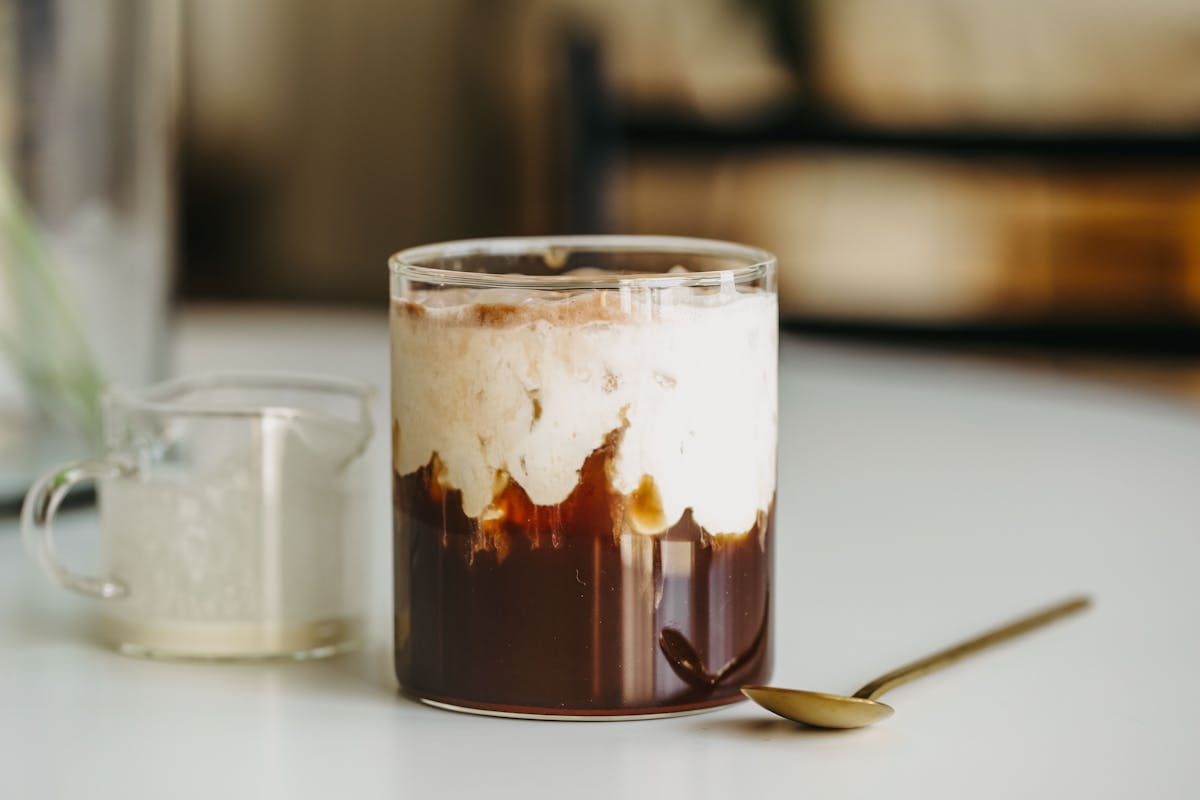
Cold, creamy and delicious - This chocolatey cold brew recipe is the perfect treat to kickstart your morning! The Recipe Chocolate Cream Cold Brew Prep Time: 1 minutes Cook Time: 5 minutes Ingre...

Indulge in the warm embrace of autumn with Pumpkin Spice Snickerdoodles - soft, spiced, and utterly irresistible! The Recipe Pumpkin Spice Snickerdoodles Prep Time: 10 minutes Cook Time: 1 hour ...

Low Carb Berries & Cream Waffles
These low carb/low sugar waffles are delicious, wonderfully crispy on the outside, and fluffy on the inside. You can also double batch and freeze for easy weekday breakfasts. Featuring our almost-...
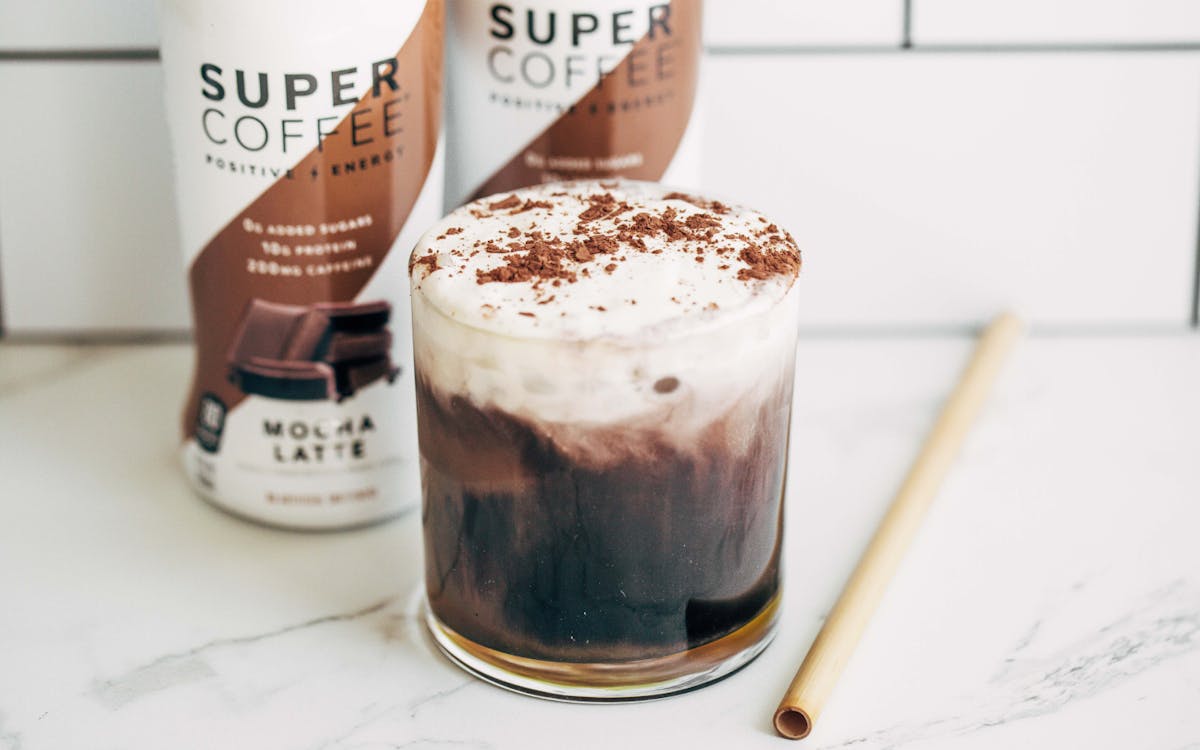
This may be the most fun latte recipe we’ve tried yet! With gooey & decadent black chocolate drizzle and a thick layer of creamy French Vanilla, just one sip of this iced latte will transport ...

Strawberry Sprinkle Keto Coffee Recipe
Nutritional Info Calories: 274 Fat: 26.7g Carbs: 5.7g Protein: 4.5g Sugar: 2.1g Ingredients 3 strawberries, sliced. 3-4 tbsp heavy cream or half & half. Enough ice to fill a glass. 1/2 cup S...

8 Healthy Coffee Recipes That Are Better Than Starbucks
There’s no question about it. Coffee is good for you. Those who don’t like black coffee, of course, commonly add milk, cream and sugar – even if that also means adding calories, fat or carbs to the...



